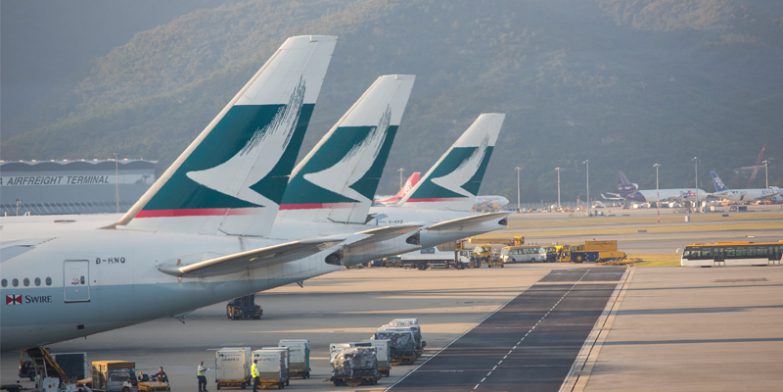
The air cargo market saw slower growth in September, but is expected to rebound strongly in October, driven by rising eCommerce demand and modal-shifts.
Although global air cargo demand growth softened in September, with a 9% year-on-year increase, eCommerce and high-tech shipments continued to drive strong performance, especially in key regions such as Asia Pacific and the Middle East & South Asia (MESA).
In August, the global air cargo market had already recorded nine consecutive months of double-digit growth, with a notable 11% rise in demand year-on-year. This robust trend has pushed air freight rates up by 26% year-on-year, driven in part by capacity constraints in ocean shipping and sustained eCommerce demand.
Capacity constraints are continuing to challenge the market. Despite a global increase of 6% in available cargo tonne-kilometres (ACTKs) in August, capacity growth in September was minimal, rising by just 3%, the lowest rate of the year. This tight supply is likely to persist as airlines begin adjusting their flight schedules for the winter season, leading to potential price hikes, especially on transatlantic routes, where a 20% reduction in cargo capacity is expected.
Additionally, intra-Asia air freight capacity is expected to tighten as airlines prioritise long-haul routes for the upcoming peak season. Shippers may need to brace for longer transit times and rising costs, with load factors already rising by three percentage points in September to 60%. The impact of the three-day US port strikes, which left more than 50 ships waiting offshore, will further strain capacity, and congestion may take weeks to clear, adding further upward pressure on freight rates.
In the longer term, despite the challenges, the air cargo market remains strong. The International Air Transport Association (IATA) highlighted that demand growth continues to be underpinned by steady global trade, eCommerce, and ocean freight capacity constraints, with air cargo yields up by 12% compared to 2023.
As supply chain disruptions continue to evolve, shippers are urged to plan for potential rate increases and longer lead times, particularly with the peak season and holiday rush approaching.
We maintain long-term deals with our primary carriers, to block space and provide dependable options for different eventualities.
We would encourage you to contact us, if you have forthcoming time-sensitive consignments.
EMAIL Andy Costara, for insights, prices and guidance.





